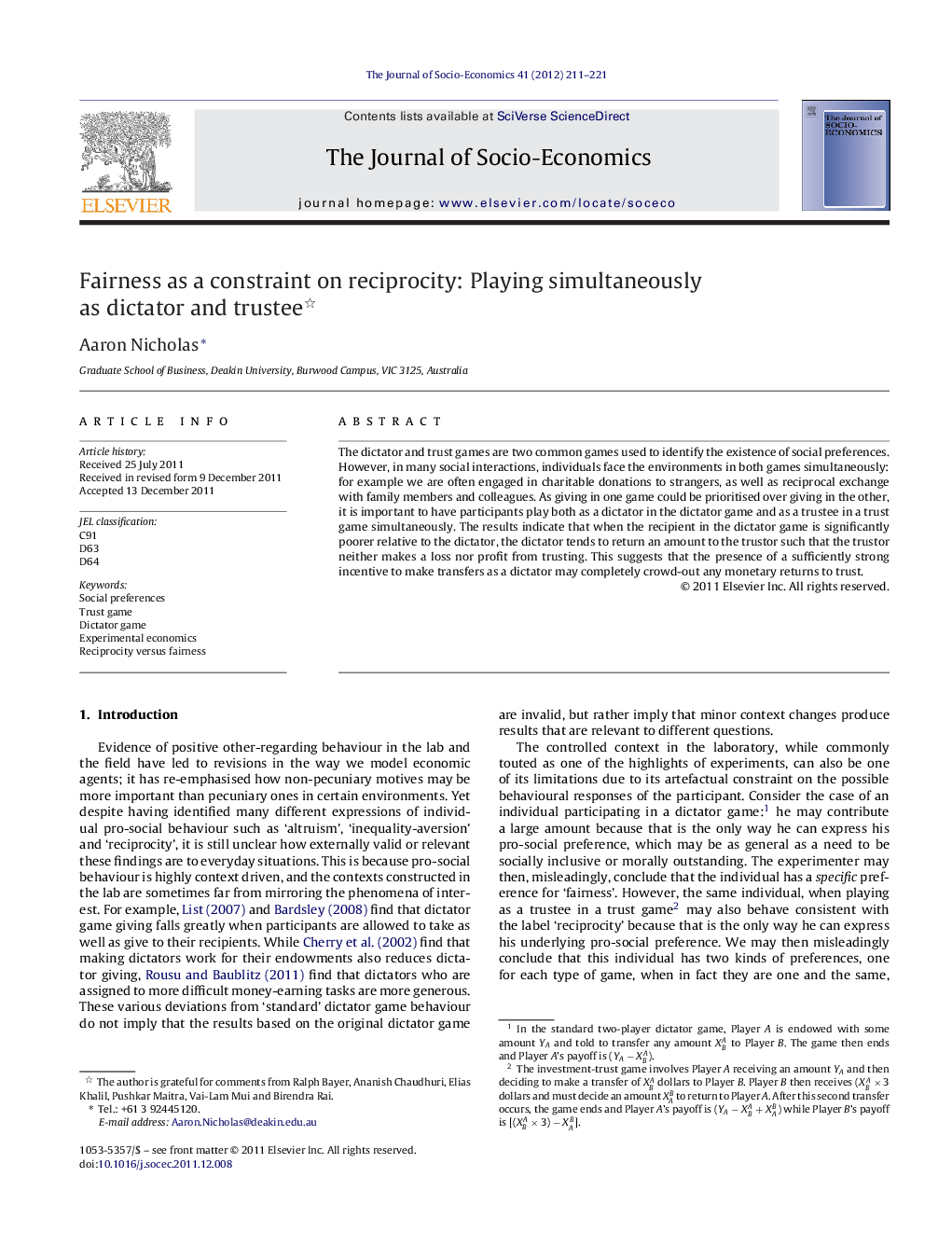| Article ID | Journal | Published Year | Pages | File Type |
|---|---|---|---|---|
| 970043 | The Journal of Socio-Economics | 2012 | 11 Pages |
The dictator and trust games are two common games used to identify the existence of social preferences. However, in many social interactions, individuals face the environments in both games simultaneously: for example we are often engaged in charitable donations to strangers, as well as reciprocal exchange with family members and colleagues. As giving in one game could be prioritised over giving in the other, it is important to have participants play both as a dictator in the dictator game and as a trustee in a trust game simultaneously. The results indicate that when the recipient in the dictator game is significantly poorer relative to the dictator, the dictator tends to return an amount to the trustor such that the trustor neither makes a loss nor profit from trusting. This suggests that the presence of a sufficiently strong incentive to make transfers as a dictator may completely crowd-out any monetary returns to trust.
► Three types of dictator games: triple dictator, dictator with unequal endowment and dictator with equal endowments are played simultaneously with a trust game. ► In dictator with unequal endowments, on average, there are no returns to trust, whereas there are positive returns in the other two. ► Suggests that fairness concerns may crowd-out the returns to trust.
